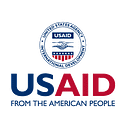Embracing Risk in Frontier Markets: Introducing Private Equity Funds in the Western Balkans
Small and medium-sized enterprises (SMEs) form the backbone of the economy in the Western Balkans, employing most of the active population. But SMEs face numerous systemic barriers — including difficulties accessing financing, low levels of digital uptake, and regulatory barriers — that dampen their contributions to the region’s sustainable economic growth.
Moreover, SMEs in the region most often receive financing through traditional banking instruments that are conservative and focus primarily on collateral. Alternative investment funds — which work by deploying capital from various investors into private companies through equity, or equity-like tools — have emerged as catalysts to vibrant and sustainable financial ecosystems in regions with emerging economies.
USAID CATALYZE Engines of Growth (EoG), which operates across six countries in the Western Balkans (Albania, Bosnia and Herzegovina, Kosovo, North Macedonia, Montenegro, and Serbia), has played a key role in the diversification of financing options for SMEs in the region by leveraging private sector financing to establish alternative financing sources and products, while simultaneously addressing demand side challenges through transfer of technology, knowledge, and expertise; increased access to markets, and enhanced digitalization. Since 2022, the Western Balkans Private Equity Fund, in collaboration with USAID CATALYZE, has been developing an equity financing ecosystem to address barriers preventing SMEs from accessing adequate financing.
In a recent webinar, Lazar Vujaklija, Partner and Director of Systema Capital Partners, Dragana Stanojevic, USAID CATALYZE Engines of Growth Team Lead, and Sandra Rodic, Senior FinTech Expert, led an engaging and interactive discussion on USAID CATALYZE’s trajectory, hurdles and successes in the development of the fund, as well as shared practical insights on equity financing strategies, scalability, and the critical role played by donors in the establishment of anchor investors within the Western Balkans and other frontier markets.
Key takeaways and insights from the discussion:
- While there is demand for equity financing in the Western Balkans, regional SMEs are often too small to attract international equity funds. They usually seek investment from several thousand dollars up to $1 million or $2 million, which falls under the minimum investment of foreign equity funds. Currently, commercial banks are still the primary source of financial capital for SMEs in the region. Traditional bank loans have stringent conditions, including a two-year credit history and hard collateral requirements, leaving most SMEs without the financing needed for their growth. There is a clear urgency to establish private equity funds with investment criteria that is specifically adapted to the needs of local SMEs.
- Without anchor investors, it is difficult for emerging managers in the Western Balkans to attract capital. The largest private equity investor in Europe is the European Investment Fund, but they do not invest in non-EU countries, leaving the Western Balkans out of their scope. While some government backed initiatives to support venture capital funds in the region exist — such as the Innovation Fund Venture Support Program in Serbia — similar initiatives to support private equity funds are not currently available. Therefore, there is an enormous opportunity for donor organizations to work with governments to help develop private equity initiatives.
- Creating a pipeline of investment-ready SMEs is necessary, as most SMEs do not have a clear understanding of equity financing and its features and benefits. Educating SMEs, opening their mind to equity financing, and supporting them to be investor-ready will help investment funds have a wider impact in the Western Balkan market.
- Development Finance Institutions (DFIs) can play a critical role in fostering the emergence of new asset classes. Insufficient funding equates to diminished growth potential and reduced support for SMEs in emerging economies. While DFIs have expressed interest in alternative investment funds, most want to see significant institutions play the role of anchor investor prior to committing capital. Donors must therefore take a comprehensive approach to supporting new financing products by either acting as anchor investors themselves, or supporting governments to establish an enabling environment and deeper structure that fosters the growth of the private equity fund industry. In addition, financial institutions in the region are not allowed to invest in equity funds, another change that the donors can help realize.
- Alternative investment funds are scalable and replicable. While the private equity market in the Western Balkans is still in its infancy, efforts — such as the creation of the alternative investment fund management company, created with USAID CATALYZE support — have demonstrated potential for scaling operations to other frontier markets in countries and regions where access to financing is challenging.
“I am grateful for what CATALYZE EoG has done in the Western Balkans, and throughout this project,” said Vujaklija. We have set the foundation to scale up [alternative finance investment ecosystems]. We worked together to create smaller several funds and get them rolling. Thanks to our efforts and successes, the first venture capital fund, Omorika, got the license and is starting to work.”
Watch the full recording of the webinar here.
About USAID CATALYZE Engines of Growth
The CATALYZE Engines of Growth (EoG) Activity (2020–2024) facilitates small and medium-sized enterprise (SME) resiliency, growth, and job creation in the Western Balkans by improving their access to and utilization of appropriate finance. With a focus on SMEs, particularly women-led SMEs, EoG’s efforts are crucial for the economic recovery and sustainable growth of the Western Balkans region.
To date, USAID CATALYZE Engines of Growth has successfully mobilized $140 million in private sector capital, benefiting over 2000 SMEs in the Western Balkans. Learn more by visiting USAID CATALYZE Engines of Growth Activity.
